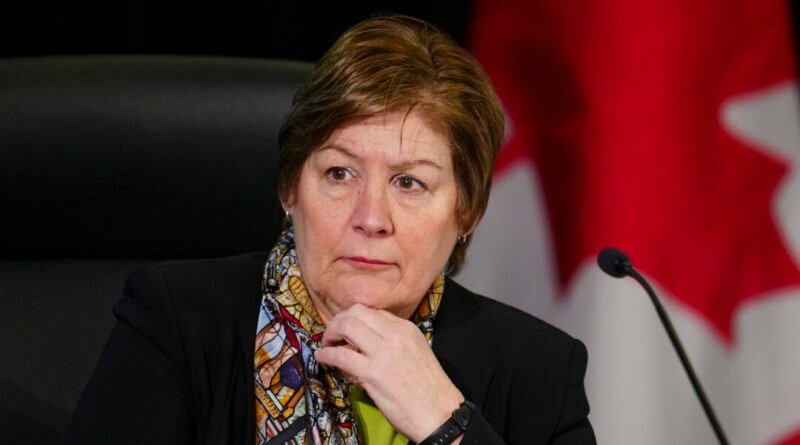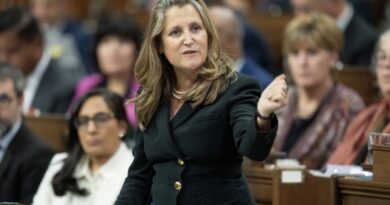Inquiry Reveals Federal Intelligence on Beijing Funding Candidates Before 2019 Elections
An elections integrity body had information prior to the 2019 general elections that the Chinese regime was financially supporting local races, but determined it did not meet the required threshold to alert the public.
Key public officials who were part of the Critical Election Incident Public Protocol (referred to as the “panel of five”) testified to this at the Public Inquiry into Foreign Interference on April 8.
Nathalie Drouin, a member of the panel serving as the deputy minister of justice at the time, was questioned regarding intelligence summaries related to the 2019 Don Valley North Liberal Party nomination contest, won by Han Dong.
According to the summary, there were irregularities in the nomination process possibly involving individuals associated with People’s Republic of China (PRC) officials.
Ms. Drouin, currently serving as the deputy clerk of the Privy Council and the prime minister’s national security and intelligence adviser, mentioned that Elections Canada was informed of the intelligence as it contained funding allegations.
While the summary from the Canadian Security Intelligence Service (CSIS) did not directly mention funding allegations regarding Don Valley North, a separate CSIS summary discussed illicit financing by Beijing.
The intelligence assessments suggest possible financial support from China to threat actors linked to Beijing.
Details mention two transfers of approximately $250,000 from PRC officials in Canada, potentially for foreign interference purposes, though not specifically to covertly fund the 11 candidates.
Ms. Drouin acknowledged being unaware of the specific fund transfer allegation and explained that the report came after the election.
Monik Beauregard, a member of the panel and associate deputy minister of Public Safety at the time, noted the ambiguity in intelligence reports and indicated that security agencies were monitoring the situation closely.
Despite being aware of intelligence on foreign interference involving fund transfers, the panel decided against alerting the public due to lack of clarity on intent and purpose.
The Critical Election Incident Public Protocol, comprising five top bureaucrats, assesses threats to election integrity to determine public alert necessity.
Further evidence presented included an intelligence report on potential interference sent by CSIS days before the 2021 vote.
Subsequently, the Privy Council Office and Elections Canada were briefed on the matter, with investigators from the Office of Canada Elections being informed as well.
Additional testimony indicated that the intelligence related to the electoral process without specifying further details.
Commissioner of Canada Elections Caroline Simard revealed ongoing investigations into potential breaches of the Canada Elections Act involving Chinese interference during the 2019 elections, including the Han Dong nomination.
The public inquiry, including testimonies from Prime Minister Justin Trudeau and ministers, is set to conclude its second hearings phase on April 10.
Commissioner Marie-Josée Hogue is expected to submit an interim report by May 3.



